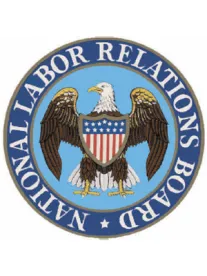When purchasing the assets of a business with unions, employers have long enjoyed much leeway in establishing initial terms and conditions of employment without having to collectively bargain those terms. This may be about to change, and employers should approach such transactions cautiously.
In NLRB v. Burns International Security Services, Inc., 406 U.S. 272 (1972) (“Burns”), the United States Supreme Court held that when “a majority of the employees hired by the new employer” work for the previous employer and were unionized, the new employer had to recognize and bargain with the established union. This general rule, however, does not apply to an asset purchase. An asset purchaser can set its own initial terms and conditions of employment, although it must bargain with the union over subsequent changes.
The Court in Burns created an important exception to the general rule for asset purchasers, known as the “perfectly clear” doctrine. An asset purchaser must bargain with the union from the outset when “it is perfectly clear that the new employer plans to retain all of the employees in the unit and in which it will be appropriate to have him initially consult with the employees' bargaining representative before he fixes terms.” (emphasis added). The Supreme Court in Burns did not further define when the “perfectly clear” doctrine applies.
In Spruce Up Corporation, 209 NLRB 194 (1974) (“Spruce Up”), the National Labor Relations Board (“NLRB”) limited the “perfectly clear” doctrine:
to circumstances in which the new employer has either actively or, by tacit inference, misled employees into believing they would all be retained without change in their wages, hours, or conditions of employment, or at least to circumstances where the new employer … has failed to clearly announce its intent to establish a new set of conditions prior to inviting former employees to accept employment.
(emphasis added). Under Spruce Up, asset purchasers have significant discretion to set employment terms and conditions.
The NLRB is now poised to specifically address and possibly overrule Spruce Up. Recently, the General Counsel argued that Spruce Up should be overturned. The Administrative Law Judge ruled that an employer was a perfectly clear successor, though he declined to follow the request of the General Counsel to overturn Spruce Up. The NLRB affirmed this decision, though it did not address Spruce Up.
Current NLRB law regarding Spruce Up is poised to change, and employers contemplating the purchase of the assets of unionized business should carefully weigh how they go about extending employment offers and setting initial terms and conditions of employment.




 />i
/>i
